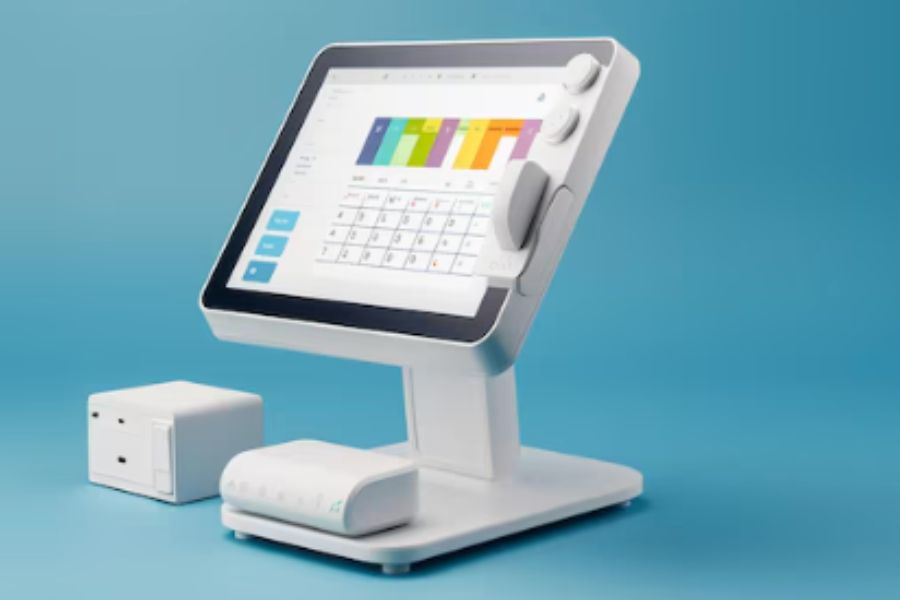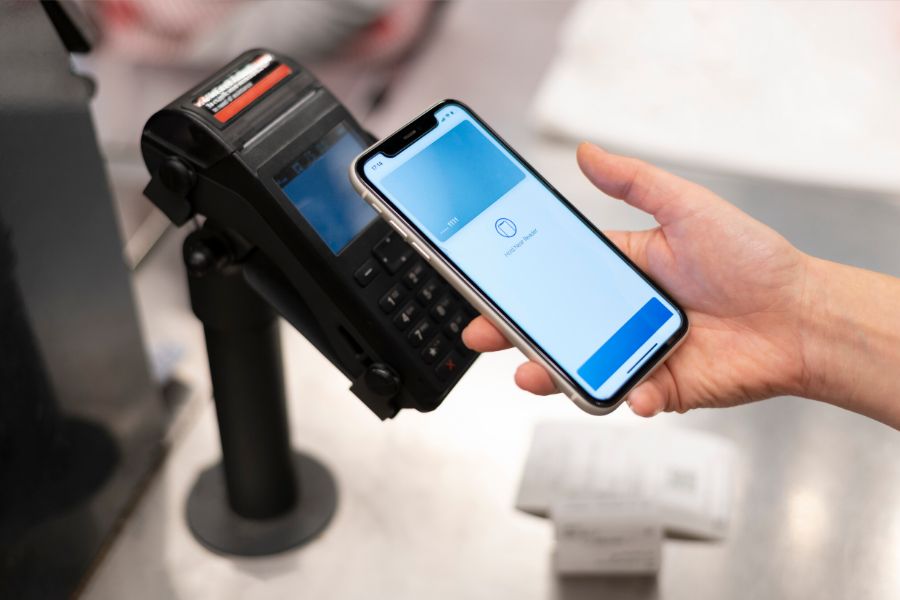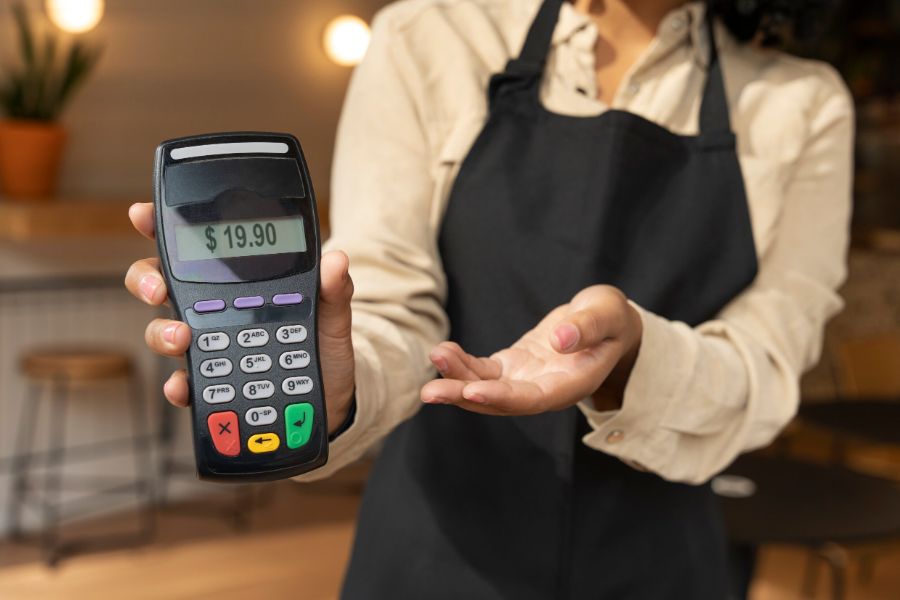Square point of sale inventory management system has gained traction as a go-to solution for many small and medium-sized businesses seeking straightforward payment processing combined with basic inventory management. Its appeal lies in simplicity and cost predictability, making it attractive for startups and retail operations with limited complexity.
Yet, as businesses scale or require more tailored inventory controls, certain limitations surface that affect operational flexibility and data insights. This review assesses Square’s strengths and weaknesses from a business perspective, while exploring viable alternatives for organizations with evolving needs.
Highlights:
- Square POS stands out for its ease of use, built-in inventory tracking, omnichannel support, clear pricing, and helpful reporting tools that simplify daily retail operations.
- However, users have noted its limited customization, lack of advanced features, occasional support issues, and tight ecosystem that can restrict flexibility as businesses grow.
The Love: What Users Appreciate About Square POS
The Square Point of Sale inventory management system has earned strong loyalty among small to medium-sized businesses, even as Square disclosed a total of US$6.1 billion in net revenue in Q2 2024 – marking the fifth consecutive quarter of slowing growth.

Here’s what users consistently value:
- User-Friendly Interface: Square POS is widely praised for its intuitive and user-friendly interface. Businesses benefit from a clean, intuitive interface that reduces onboarding time and minimizes the learning curve for new employees. The system is designed to be accessible even for non-technical users, making day-to-day operations more efficient.
- Integrated Inventory Management: Merchants appreciate Square’s built-in inventory management that allows real-time tracking across all locations. This integrated feature eliminates the need for third-party systems and helps businesses maintain tighter control over stock levels, reducing shrinkage and improving profitability.
- Multi-Channel Support: Square enables smooth integration between in-store, online, and mobile sales. Businesses value the unified experience that allows them to manage orders, inventory, and customer data from a single platform, enhancing operational efficiency and supporting omnichannel growth.
- Affordability: Square POS is recognized as a cost-effective solution, offering transparent pricing and no long-term contracts. Especially appealing to small retailers and startups, it provides enterprise-grade tools without the overhead typically associated with more complex systems.
- Reports and Analytics: The platform’s reporting and analytics tools deliver actionable insights into sales performance, customer behavior, and product trends. Users value the ability to make data-driven decisions that support smarter purchasing, staffing, and marketing strategies.
In short, Square POS stands out for combining simplicity with powerful features—an attractive proposition for growth-focused businesses seeking reliable healthcare, retail, or hospitality solutions.
The Hate: Limitations and Pain Points
As studies show, 46% of respondents in a 2023 survey by Retail Consulting Partners prefer to add extensibility to their POS systems. Similarly, 46% of users expressed interest in upgrading or replacing their POS software when their needs exceed current core capabilities.
Square’s platform, while popular, has limitations in customization and integration flexibility that can prevent businesses from adapting the system to their specific workflows or integrating external tools. Actually, some users find the Square point of sale inventory management system effective for basic needs, but certain gaps remain for businesses with more complex demands.
- Missing Sophisticated Capabilities: The platform tends to focus on core functions. Businesses looking for more depth in areas like loyalty management, complex inventory structures, or staff performance tracking may run into roadblocks.
- Limited Room for Tailoring: Customization can feel restrictive. For brands with unique workflows or branding needs, the system may not support the level of flexibility they’re after.
- Inconsistent Support Experience: Getting timely and knowledgeable help isn’t always guaranteed. Some users report long wait times or difficulty resolving issues on the first attempt.
- Locked Into One Ecosystem: Square’s products are tightly linked. Businesses looking to plug in external tools or migrate to another platform may face constraints that slow down transitions or complicate integrations.
These limitations matter most to growing businesses that are beginning to outgrow Square’s core setup. For some, the trade-offs are manageable; for others, they prompt the search for a more tailored solution.
The Alternatives for square point of sale inventory management system
ConnectPOS
ConnectPOS stands as the best inventory management software for retailers and a scalable retail solution tailored for businesses needing real-time synchronization between online and physical stores. Built to support omnichannel operations, the system integrates directly with eCommerce platforms such as Magento, Shopify, and BigCommerce. As one of the leading alternatives to Square Point of Sale inventory management system, ConnectPOS provides consistent performance across customer touchpoints for businesses working across retail segments, from fashion to electronics.
Features
►►► Optimal solution set for businesses: Multi store POS, Next-gen POS, Inventory Management Software (MSI), Self Service, Automation, Backorders

- Centralized inventory visibility across all outlets and sales channels
- Real-time stock updates across warehouses and retail stores
- Barcode scanning and customizable product attributes for detailed item tracking
- Offline transaction support with auto-sync when the connection is restored
- Multi-store and multi-warehouse support for chain retailers
- User access control by role and responsibility
- Integration with customer loyalty tools and refund/exchange workflows
Custom receipt templates and multi-language interface options
Pricing
ConnectPOS provides custom pricing based on business size and operational needs. Retailers can choose between professional packages for standard store requirements or enterprise-grade configurations for custom development, integrations, and priority support. Hardware compatibility includes tablets, barcode scanners, cash drawers, and receipt printers. Dedicated account management and technical onboarding are included in enterprise plans.
Shopify POS
Shopify POS originated as an extension of an online snowboard store and evolved into a comprehensive retail system that seamlessly integrates digital and physical operations. Since its POS launch in 2013, Shopify has helped retailers manage sales, inventory, and customer data through a centralized platform. The company is based in Ottawa, with offices in Toronto, Montreal, and other locations worldwide.
Features
- Inventory tracking across physical and online stores
- Central control over sales and customer activity
- POS and eCommerce in one system
- Retail hardware compatibility
- Reporting and analytics tools
- Suitable for different store sizes and formats
Pricing
- The Basic plan costs $32 USD per month and supports solo sellers. It includes POS Lite, 10 inventory locations, chat support, and 2% card rates with third-party processors.
- The Shopify plan, at $92 USD per month, supports small teams, adds five staff accounts, and lowers card rates to 1%.
- The Advanced plan is priced at $399 USD per month, providing custom reports, 15 staff accounts, 10 inventory locations, and card rates starting at 0.6%. F
- for large-scale operations, the Plus plan begins at $2,300 USD per month under a 3-year agreement. It includes 200 inventory locations, unlimited staff, custom checkout options, global selling across 50 markets, and priority phone support.
Lightspeed POS
Founded by Dax Dasilva in 2005, Lightspeed POS is headquartered in Montreal and maintains a presence across Canada, Europe, the US, and Australia. Its acquisition of POSIOS in 2014 marked a strategic expansion into restaurant-focused solutions. The later addition of Vend and ShopKeep broadened its retail portfolio, positioning Lightspeed as one of the alternatives of Square Point of Sale inventory management system for businesses seeking specialized tools for inventory tracking and sales operations.
Features
- Inventory tracking by size, color, and other product attributes
- Apparel-specific stock control tools
- Integration with NuORDER for importing purchase orders
- Centralized data for sales and customer management
- Built-in tools for loyalty and staff permissions
- Support for retail and restaurant environments
Pricing
Lightspeed Retail provides three subscription plans.
- The Lean plan is priced at $109/month and includes basic inventory, POS, and customer tools.
- The Standard plan, at $179/month, adds employee control, reports, and loyalty tools.
- The Advanced plan costs $289/month and supports gift card management, age verification, and deeper stock tracking.
Transaction processing fees are billed separately based on usage.
Clover POS
Clover is a point-of-sale system built to support retail and dining operations. It allows users to configure the system according to their business structure through an app marketplace, providing flexibility for different workflows and customer needs.
Features
- Inventory tracking and product catalog management
- Staff control and shift scheduling
- Loyalty program setup for repeat customers
- App marketplace to expand system capabilities
- Custom interface options for various business types
Pricing
- The Retail Starter plan is priced at $14.95 per month for software, with hardware starting at $799. Leasing options are available for those preferring monthly payments.
- The Retail Advanced plan costs $64.90 per month for software. Hardware for this tier can reach up to $2,398, with higher monthly leasing rates based on configuration.
- For Full-Service Dining, software plans range from $84.95 to $114.85 per month. Hardware packages begin at $1,699 and go up to $4,097, with leasing rates between $160 and $310 per month depending on setup.
FAQs: Square Point of Sale Inventory Management
Who should consider switching from Square?
Retailers needing granular inventory control, advanced reporting, or deeper integrations with eCommerce POS platforms may look for alternatives. Businesses expanding to international markets or managing wholesale and retail arms simultaneously often seek systems with broader scalability and API flexibility.
What are some alternatives to Square for inventory management?
ConnectPOS supports real-time sync between online and offline sales and handles complex inventory requirements across outlets. Lightspeed Retail gives more room for product variants and purchase order workflows. Clover serves hospitality and retail sectors through modular plans and third-party app integrations.
Is Square POS suitable for large-scale operations?
Square can work for single-location setups or businesses with straightforward inventory needs. For those requiring custom automation, detailed analytics, or regional compliance features, switching to an enterprise-grade system may better support operational growth.
Can Square Point of Sale inventory management system integrate with other platforms?
Square connects with basic accounting and eCommerce systems, but integration depth may be limited for certain platforms. Businesses using Magento POS, WooCommerce POS, or enterprise ERP solutions may face constraints and require third-party middleware or custom development.
Conclusion
Square point of sale inventory management system suits operations that require minimal inventory coordination and direct sales processes. Its interface remains accessible, while the flat-rate pricing appeals to independent retailers and mobile-focused sellers. For businesses expanding product lines or requiring stronger reporting depth, the system may fall short over time. Assessing other platforms becomes a logical next step when greater data visibility, channel integration, and operational flexibility are expected.
ConnectPOS presents a direction for businesses advancing beyond entry-level needs. Its capacity to align with retail complexity makes it a sound consideration for those adjusting systems to match scale. To learn how ConnectPOS can support your retail operations, contact us directly.
►►► Optimal solution set for businesses: Shopify POS, Magento POS, BigCommerce POS, WooCommerce POS, NetSuite POS, E-Commerce POS




